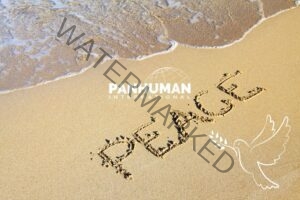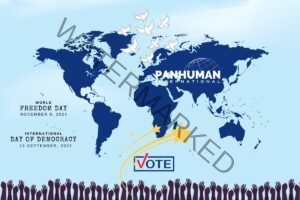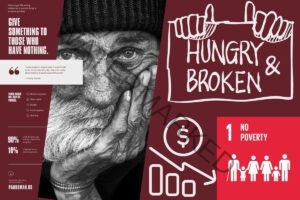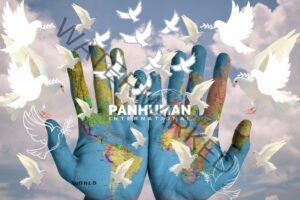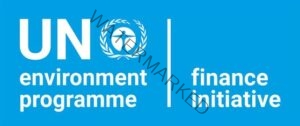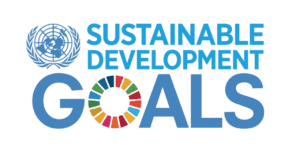 The specter of global conflict, more ominous than ever, hovers over a world that yearns for peace yet is consistently thwarted by rising hostilities, deep-rooted animosities, and an unrelenting arms trade. This fragile equilibrium places us on the precipice of another worldwide catastrophe, a potential 3rd World War that could annihilate the very fabric of civilization. In this volatile climate, a question lingers: will humanity heed the lessons of history, or are we destined to repeat them?
The specter of global conflict, more ominous than ever, hovers over a world that yearns for peace yet is consistently thwarted by rising hostilities, deep-rooted animosities, and an unrelenting arms trade. This fragile equilibrium places us on the precipice of another worldwide catastrophe, a potential 3rd World War that could annihilate the very fabric of civilization. In this volatile climate, a question lingers: will humanity heed the lessons of history, or are we destined to repeat them?
The Cost of Inaction and the Cycle of Conflict
From territorial clashes to ideological rifts, global conflict continues to escalate, propelled by unchecked arms trading and massive military expenditures that overshadow humanitarian needs. Countries prioritize “defense” at the expense of human lives and rights, investing in weapons that lead to unimaginable devastation rather than diplomacy that could foster peace. Each bomb dropped, each bullet fired, casts a shadow not just over those directly impacted but over the entire globe. In such a climate, the line between localized conflict and global warfare blurs, creating a tinderbox that could ignite into a worldwide blaze at any moment.
The Human Toll of Escalating Hostilities
The catastrophic impact of war on civilians is staggering. Modern weaponry no longer confines destruction to combatants alone; it reaches deep into civilian lives. Homes, schools, and hospitals crumble under the weight of artillery, leaving survivors in endless cycles of trauma and poverty. This tragedy unfolds far beyond active war zones: gun violence, fueled by arms trading, ravages societies worldwide. Each day, 500 lives are lost to firearms—an ongoing war in itself. The proliferation of weaponry is not only sustaining conflicts but seeding new ones, an unsustainable trajectory with devastating consequences for our future.
A World Armed to the Teeth: The Arms Trade’s Role in Global Instability
Twelve billion bullets—a chilling number produced annually, enough to take every human life twice. The global arms trade perpetuates violence and terrorism, amplifying regional instability and driving nations further from peace. Although frameworks like the Arms Trade Treaty (ATT) aim to restrict arms flow, they are riddled with loopholes and limited in reach. Major exporters, including the United States and Russia, bypass or ignore these regulations, allowing arms to reach regions where they fuel human rights abuses and political unrest.
It is a moral imperative for countries to own their role in exacerbating global conflict. Regulation and accountability must replace profit-driven motives. We stand at a crossroads where we must decide whether to permit the unregulated flow of weapons that destabilize regions and obliterate lives or to intervene and foster conditions conducive to peace.
Case Studies in Escalating Militarization and Societal Costs
Several nations exemplify the troubling trajectory of prioritizing military expenditure over human development. In regions fraught with historic animosities, like India and Pakistan, military spending supersedes urgent social needs such as poverty alleviation, healthcare, and education. North Korea diverts resources to its nuclear program while its citizens face starvation and repression, highlighting the stark trade-off between military might and societal welfare. Russia’s intervention in Ukraine and Saudi Arabia’s involvement in Yemen illustrate how unchecked military ambitions devastate civilian populations and destabilize entire regions.
These cases underline a grim reality: the resources invested in militarization could be redirected to human development, fostering stability rather than perpetuating conflict. Yet, the allocation continues to fuel cycles of violence, creating a powder keg that threatens to engulf the world in war.
The Cost of Unchecked Arms Trading on Human Lives
The repercussions of unregulated arms trade extend beyond conflict zones, permeating every layer of society. As weapons flow freely, they fortify authoritarian regimes and bolster non-state actors who wield violence against the vulnerable. Governments often defend arms trading as necessary for national security, but the true cost is paid by the civilians who are caught in the crossfire.
This unregulated trade is not just an economic dilemma but an ethical one. Governments must recognize their complicity in perpetuating violence and take decisive steps toward stringent regulation. A world focused on sustainable peace, not perpetual conflict, depends on such decisive action.
Global Peace Initiatives & the Demand for Conflict Resolution
To avert the looming threat of a Third World War, the global community must adopt a revolutionary approach to peacebuilding. This means moving beyond temporary ceasefires and superficial diplomacy. The call to action is clear: prioritize conflict resolution through international collaboration, increase accountability for arms export violations, and address root causes of global instability.
Nations must reassess their budgets, diverting funds from military programs to social development initiatives that combat poverty, provide healthcare, and promote education. Strengthening the Arms Trade Treaty and implementing punitive measures against non-compliance can mitigate the rampant spread of weaponry and violence.
A Global Call for Unity and Accountability
The road to peace demands sacrifice, responsibility, and global solidarity. In a world marred by violence, peace cannot remain a distant ideal. It must be actively cultivated through cooperative efforts that transcend national borders and self-interest. By regulating the arms trade, reducing military budgets, and investing in diplomacy and humanitarian needs, we can rewrite the narrative from impending war to lasting peace.
This is not just an aspiration but an urgent imperative. At this pivotal moment, as we balance on the edge of another global conflict, we have the power to choose unity over division, peace over war. Our collective future depends on the actions we take today. The path to peace is difficult, but it is one we must tread, for the alternative—an unrestrained descent into global conflict—is too devastating to contemplate.
PANHUMAN INTERNATIONAL: For Peace. For Humanity. For Progress.
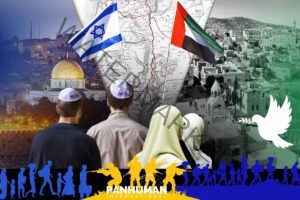


 The specter of global conflict, more ominous than ever, hovers over a world that yearns for peace yet is consistently thwarted by rising hostilities, deep-rooted animosities, and an unrelenting arms trade. This fragile equilibrium places us on the precipice of another worldwide catastrophe, a potential 3rd World War that could annihilate the very fabric of civilization. In this volatile climate, a question lingers: will humanity heed the lessons of history, or are we destined to repeat them?
The specter of global conflict, more ominous than ever, hovers over a world that yearns for peace yet is consistently thwarted by rising hostilities, deep-rooted animosities, and an unrelenting arms trade. This fragile equilibrium places us on the precipice of another worldwide catastrophe, a potential 3rd World War that could annihilate the very fabric of civilization. In this volatile climate, a question lingers: will humanity heed the lessons of history, or are we destined to repeat them?